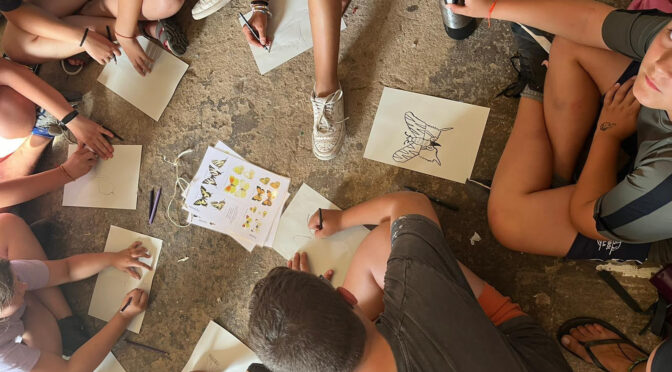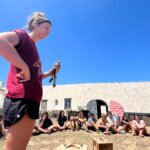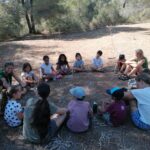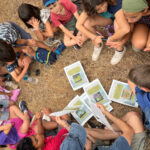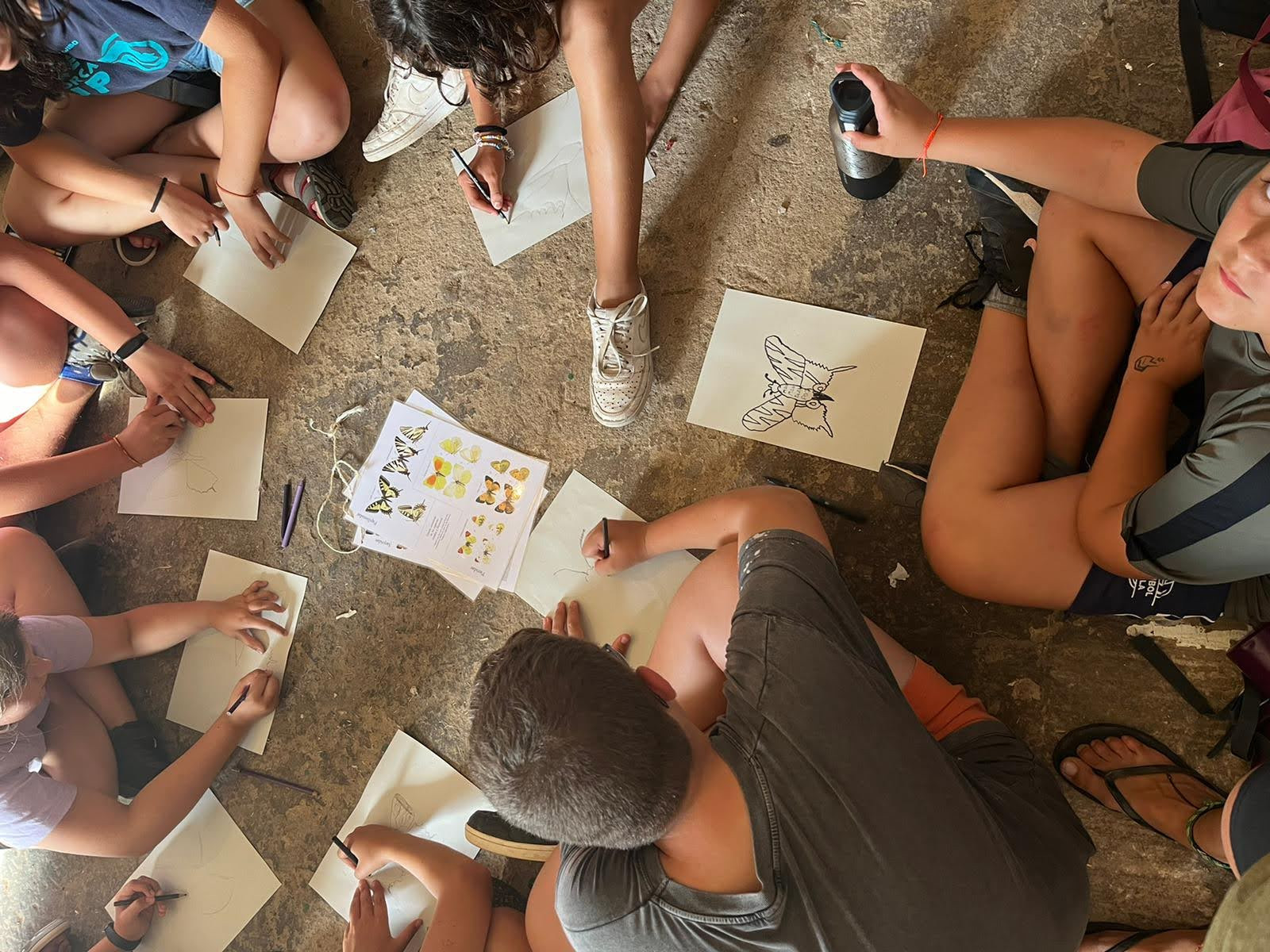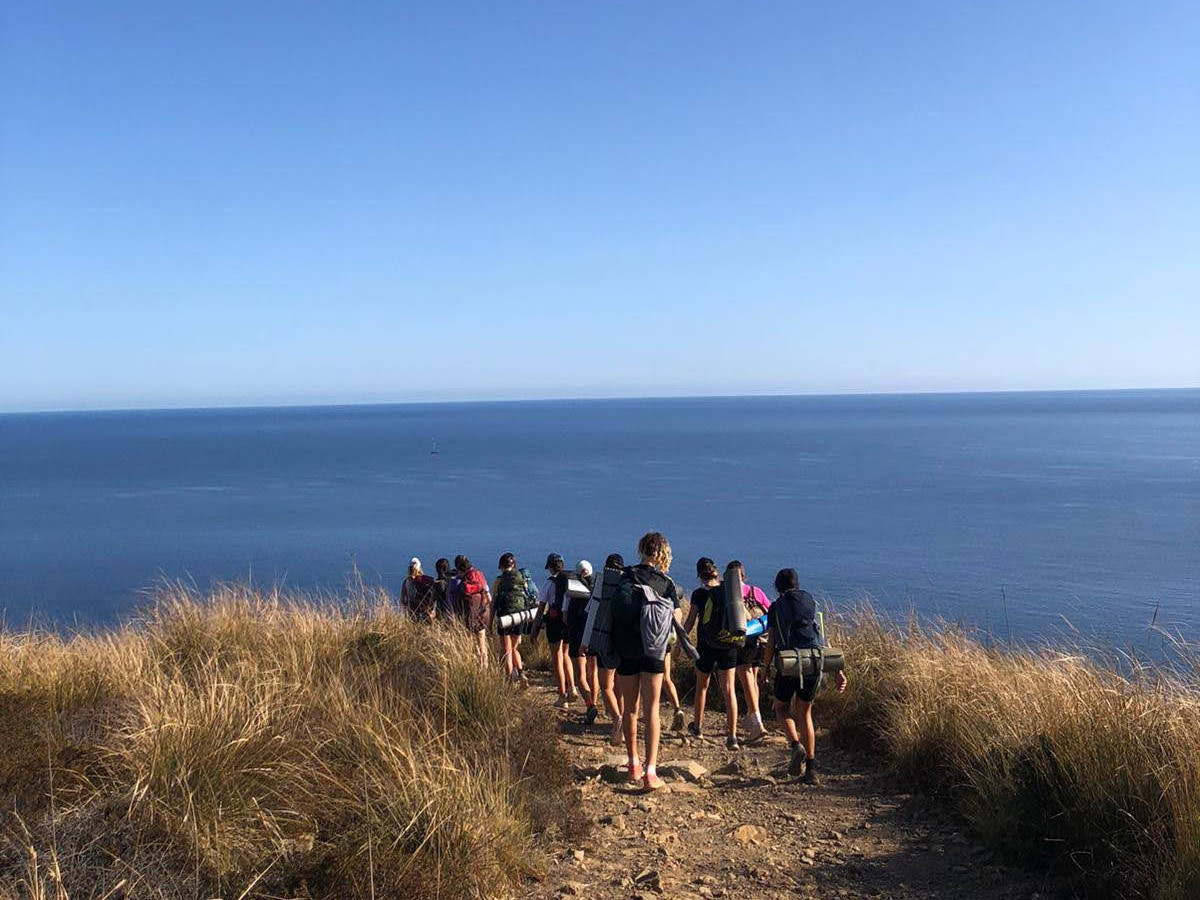Views: 1098
Shortly after the summer solstice, we kicked off this year’s series of environmental camps! This year marked the first time we expanded to four consecutive camps, each tailored to a specific age group: small children, middle-aged children, teens, and a hiking expedition for young people.
Mongofra Nou, nestled within the Albufera des Grau Natural Park and the wild northern part of the island, provided an unparalleled setting for collective fun and learning about environmental values, respect, coexistence, and autonomy, all in constant contact with nature.
Camps for the small and middle-aged children
The last week of June saw the start of the first camps at Mongofra Nou with the youngest participants. The extraordinary natural value of the area was an incomparable source of inspiration for what was, for many, their first experience of living away from home.
Thirteen children aged 6 to 8 spent five days full of adventures and learning. This year’s central theme was discovering and addressing the impact of climate change on the diversity of fauna and flora. We were visited by familiar characters: Bresca the bee, who lives in Mongofra and explains pollination to the children, and various friendly migratory birds that meet there annually. These characters highlighted the importance of biodiversity, seed dispersal, and pest control in crops.
The four friendly migratory birds accompanying Bresca the bee were Zen, a water bird that nests in the Mongofra salt marshes among other wetlands in Menorca; Tortell, a starling that winters in large flocks; and Rutxi, a nightingale known for teaching us folk songs and dances while educating us about flycatchers. Each of these characters helped us explore different topics in a fun way through activities like scavenger hunts, cooperative games, sensory activities, and workshops. The children were always at the center of the story and their learning processes.
We also conducted environmental activities related to the marine environment, local fauna and flora, and instilled care and love for nature and our surroundings.
Over twenty children lived together at Mongofra. During these camps, we maintained the theme of migratory birds through the aforementioned characters, but with activities adapted to the cognitive and developmental stages of each age group. This time, the focus was more on the impacts of climate change, specific issues, and reflective work on individual and collective habits and actions to address them.
Teen Camps
In the third week, we held the teen camps with a group of 23 young people working together to convince two major businessmen, named COdos and NOdos, not to build a car factory in Mongofra.
This thematic approach allowed the youth to learn and reflect on the environmental problems that flora and fauna would face if the area were destroyed, thanks to messages from characters like Bresca the bee and Zen the water bird.
The educational work focused on helping the teens understand the importance of environmental preservation through practical and dynamic activities that promote teamwork, problem-solving, and critical thinking. The teens participated in debates, creative workshops, and nature excursions where they could observe the potential effects of environmental destruction firsthand.
This experience allowed the young participants to develop a deeper awareness and a stronger commitment to protecting the environment.
Youth Hiking Expedition
We culminated with the youth hiking expedition in the northern part of the island. A group of young people aged 13 to 16 embarked on a six-day hike from the Valley to Mongofra.
Group hikes are a learning experience in themselves. The group balances and develops as the days pass, learning to care for themselves and each other. The value of effort and the natural landscapes they traverse are essential ingredients for a full and unique educational experience.
We started in the island’s wildest area and gradually approached large urban areas and bustling tourist beaches, engaging in active observation and stimulating debates about consumption, overcrowding, and the impact of seasonal tourism on the environment. We discussed the north-south divide, poverty in its various forms, gender, consumption, and other topics of interest to the group. There was room for care activities, debates, role-playing games, stargazing evenings, physical games, group cooperation, environmental exploration, and collective responsibilities.
As an educational team, we emphasized group work, participation, and self-management. Living together, being surrounded by nature, collective tasks, the calm of evening gatherings, the beach ecosystems, adrenaline and cooperation in games, making new friends, and reuniting with old ones have surely provided a wealth of unforgettable memories and new experiences for those who enjoyed the adventure.
These intense weeks of immersion were also made possible thanks to the support of the Maó City Council, the Mercadal City Council, and Colonya Caixa Pollença.
This text is an adaptation from an automated translation of the original publication in Catalan on the GOB Menorca website.

